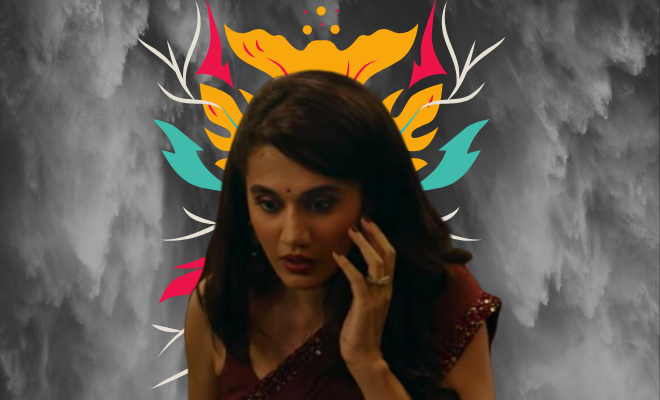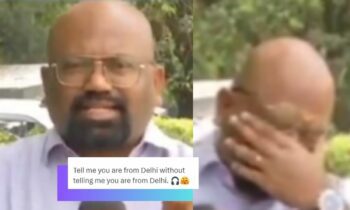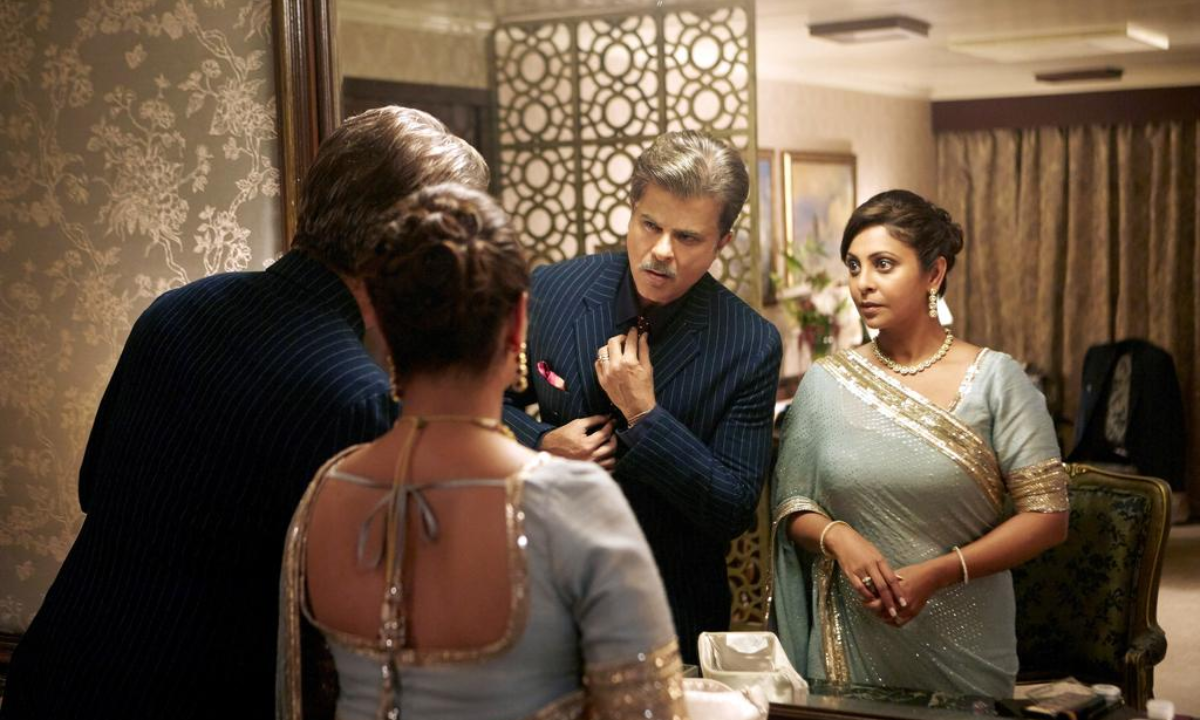Thappad Review: Taapsee Pannu’s Film Calls Out The Casual Sexism In Our Relationships And Asks The Men To Step Up

Ask any woman who has walked out of more than one relationship and she will tell you that even her closest people will have her believe that it’s her problem. The best intentioned people in your life will ask you to suck it up a little and make it work because apparently all women have to compromise. They say no relationship is perfect and that it’s just how it is. And forget the men, this advice will come to you from the women in your life who claim to have been there, done that.
For the longest time, I didn’t know what to do because I tend to break up if I feel I am not treated right. I don’t know why I should compromise on that but everybody tells you that a woman must do it to keep her relationship going. Anubhav Sinha’s Thappad starring Taapsee Pannu is a movie that highlights the patriarchy in our society with not just one central story but several stories that work towards the same message.
We often dismiss sexism in romantic relationships as a thing in the lower strata or in the smaller towns of India. We are too confident that we as millennials living in the urban society will never entertain a lack of equilibrium in a relationship but we don’t even realise that we are deeper in it than we know. Amruta (Taapsee Pannu), fondly called Amu is a young woman who married Vikram (Pavail Gulati) and chose to become a housewife. She wasn’t forced into it but she was raised by her mother to believe that a woman must prioritise her home and family.
One day, at an ongoing house party at their home, her husband Vikram slaps her out of his frustration over something else. It’s almost like reflex action for him and the show goes on for him but she retreats back to her room for the rest of the night. The next day again everyone goes on with their day almost like nothing happened. Like that slap was acceptable and that is even more disconcerting.
Vikram holds her and asks her to let go of what happened. He then goes on to completely focus on himself and what people must be thinking of him. He talks about how frustrated he was about a professional matter and you can tell at that point that he can’t even see the damage that one slap did to Amu’s self-esteem and feelings.
The days pass by with their routine unshaken. The newspaper guy throws the newspaper every day in their house. She wakes up, puts the alarms off and goes on to make tea and breakfast. You see Vikram leaving and she stands there at the gate to give him his wallet. One may call this repetitive but it shows that the time was passing differently for everyone else and Amu. Everybody had moved on in their lives and one can see Amu not being able to come to terms with what happened. Vikram, still focussed on his work, tells Amu how one should leave when they don’t feel valued and they need to put their foot down. It almost feels like Vikram is completely blind to Amu’s ordeal, which is understood by the audience. Vikram and we are on completely different pages. In fact, for better or for worse, it was his own advice that motivated Amu to walk out of the marriage.
Both Amu’s mother and Vikram’s mother are essentially well-intentioned people but they still don’t empathise with Amu. They don’t see why Amu wants a divorce and why she is not compromising like they have done all their lives, like their mothers have done. Vikram’s frustration is increasing day by day because he feels he is entitled to expect Amu to compromise and be the second-class citizen in his home. Throughout the movie, not once he understood the gravity of the situation and he never apologises for his actions. And it isn’t just about a slap. It’s about how she was devalued in the relationship and how he never truly saw her as an equal. The slap merely acted as a jolt that made her realise the shallowness of the relationship.
https://www.instagram.com/p/B8-Tp5Lpgde/
Usually, movies have one central story and other characters just contribute to it. But Thappad was making a point through different characters and the stories they tell. Some men were terrible – from a man used violence against his woman to a man who committed marital rape. But some men weren’t evil but simply overlooked the needs of their women. They failed to be true companions and really take care of what their wives want – be it Amu’s father, Vikram’s father or Amu’s brother. It’s amazing how though it could have easily slipped into that territory, the movie categorically avoids male-bashing. Towards the end, it shows an idealistic turn of events where women are able to take a stand and demand the respect they deserve. And men learn to treat their women right. In fact, the mothers realise that they need to stop telling their daughters to compromise and their sons to expect it from their wives. Such an ideal scenario…only if people were actually able to see it so easily in real life. Maybe someday.
https://www.instagram.com/p/B8vhwcKJRnt/
ALSO READ: Taapsee Pannu Said A Slap Shows Disrespect, Not Love. Hey Sandeep Vanga, Are You Listening?
All-in-all, the actors have done full justice to their characters. Taapsee Pannu, one of the finest actors in Bollywood right now, has emoted so well that you can feel what she feels. Every character seems too familiar because there’s nothing extra about them. You’ve met people like these in real life. Our parents are like theirs. We’ve dated a guy like Vikram or Amu’s brother Karan. We’ve also seen men who violate their wife’s dignity. And women who are in relationships but not whole heartedly. These characters feel too real, which is probably why you cannot remain untouched by the movie. And I don’t see why anyone should.

















